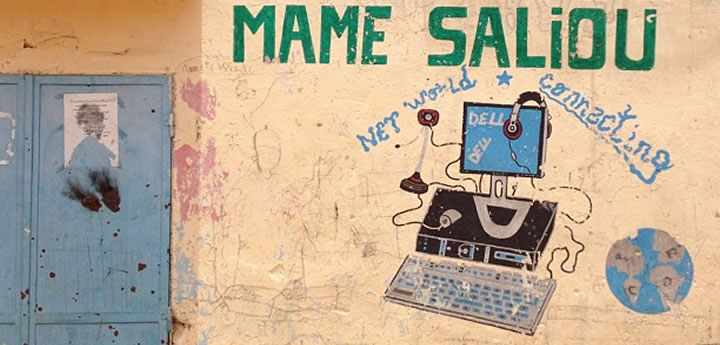From unused television frequencies to stratospheric balloons and from drone aircraft to communications satellites; why are companies such as Google and Facebook striving to bring Internet access to the African continent?
Despite being home to more to 15 percent of the global population, Internet access in Africa pales in comparison to the rest of the world. Internet penetration, the percentage of a region’s market that has been captured by data providers, was less than 15 percent in Africa at the end of 2012, meaning that only roughly 7 percent of Africans are Internet users. For years, the only option for some people has been satellite internet through services, which is itself somewhat limited in certain parts of the developing world.
In terms of anthropological history, the African continent is the most ancient cradle of humanity. In more recent years though, human development in the Dark Continent has significantly lagged behind over the centuries. This is a land of more than 50 countries, over a billion people and about 2,000 languages. Clearly, there is a lot of potential for human greatness in Africa, however this is a continent that has been consistently dealt the most unfortunate cards. As a result, many communities in Africa are deprived of fair access to education and information.
Google’s Project Loon
It has been more than one year since Internet giant Google announced that its cutting-edge and speculative Division X had begun working on Project Loon: an ambitious endeavor to launch high altitude balloons equipped with a special payload that could deliver a wireless data signal to remote communities. Successful testing of Project Loon has taken place in the rugged Amazon region, and Africa could be next. Before this project, Google had looked into taking advantage of the available television spectrum to deliver Internet access, but this proved to be a highly bureaucratic and politicised affair in many African nations.
Facebook’s Internet.org
According to the CEO of the world’s most popular online social network, two thirds of the world cannot connect to the Internet. In early 2014, Mark Zuckerberg announced the launch of Internet.org, an initiative to provide free wireless data to faraway corners of the developing world by means of drone aircraft as well as laser and satellite technology. Facebook has made it clear that these sophisticated attempts to deliver Internet access to Africa and other remote regions would help the company position products such as Instagram and WhatsApp, thereby increasing the network’s global reach.
Business interests
That Facebook and Google are behind these ambitious projects does not surprise business analysts. These two powerful American companies have been very competitive in relation to their respective global Internet penetration. On one hand, Google makes the bulk of its massive revenue from advertising. On the other hand, Facebook keeps Wall Street and shareholders happy by showing them that they can reach global audiences and compete against Google in the online advertising arena.
There is no question that bringing free Internet access to underdeveloped African communities can help improve the quality of life via educational opportunities, but wireless data connections are hardly the only means to achieve this. In countries such as Costa Rica, public education in remote rural communities is delivered via AM radio. This tiny Central American nation has also experimented with sneakernets, the physical delivery of electronic data to remote areas. During a recent visit to Cuba, Google’s Chairman Eric Schmidt learned that sneakernets are still being used in this Caribbean island nation. When it comes to education, both Costa Rica and Cuba enjoy some of the highest literacy rates in Latin America.
Regardless of what the business motivation is behind bringing these communities online, the internet will help to create better infrastructure for both public health and public education. There are countless ways that citizens of developing countries stand to benefit from increased web access, particularly students, for whom the internet will provide (among other things) a means of supplementing class work in schools with unfavorable teacher to student ratios.
The internet is by no means a cure-all. Clearly, however, its presence in the third world is crucial.



